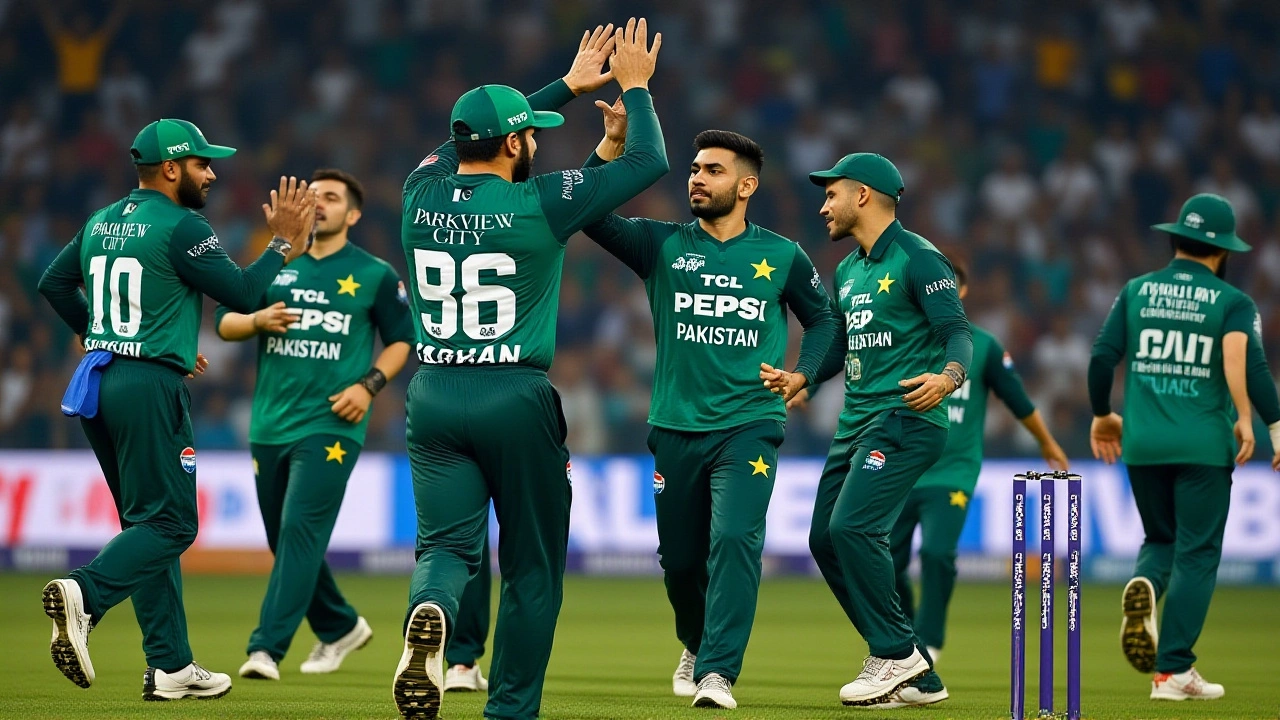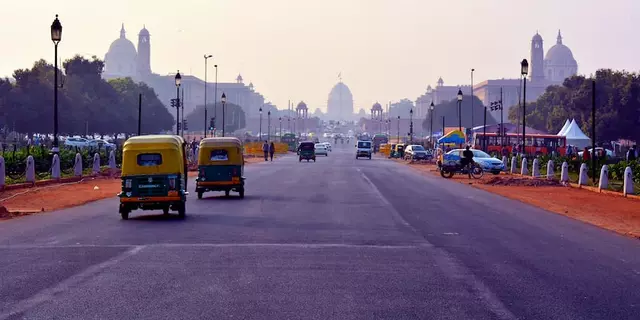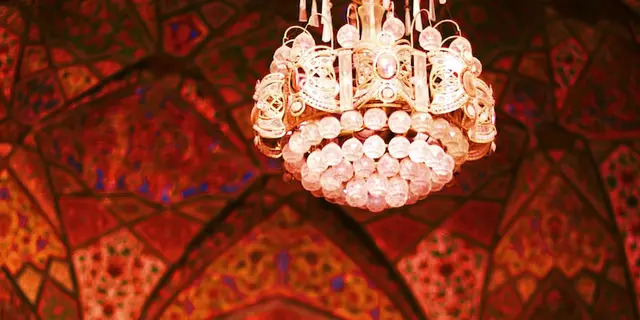On a tense evening under the floodlights of West End Park International Cricket Stadium in Doha, Pakistan Shaheens clinched their third Asia Cup Rising Stars title by defeating Bangladesh A by one run in a nail-biting Super Over on November 23, 2025. Both teams had scraped together 125 runs in their 20 overs — a score that felt more like a siege than a total — before the drama exploded in the tiebreaker. It wasn’t just about runs; it was about nerve, youth, and the quiet pressure of being the next generation of international cricket.
Chasing Perfection in the Desert
Captain Irfan Khan Niazi, 22, won the toss and chose to bat first, a decision that looked bold under the Doha night sky. The pitch offered little help early, but the pressure mounted as wickets fell in clusters. Saad Masood Khan, 21, lit up the innings with a blistering 38 off 26 balls — five boundaries, no flinching. Arafat Minhas, just 20, held the middle together with 25 off 23. When Pakistan Shaheens were all out for 125 in 120 balls, it felt under par. But in this tournament, under par was enough.Bangladesh A responded with grit. Openers Habibur Rahman Sohag and Rakibul Hasan (24 off 28) stitched together a fight, while their bowlers — led by Ripon Mondol (3/25) and Rakibul Hasan Ripon (2/16) — kept the score in check. But the moment of truth came in the final over: needing 12 off 6, Bangladesh A collapsed from 113/7 to 125/9. Their last two wickets fell to Ahmed Daniyal, whose 4-over spell of 2/11 was the quiet anchor of Pakistan’s defense.
Super Over: A Test of Soul
The Super Over wasn’t a formality. It was a duel between two young men with futures on the line. Bangladesh A, led by captain Akbar Ali, sent in two finishers. They managed just six runs and lost two wickets in 1.8 balls. Ahmed Daniyal didn’t just bowl — he commanded. His yorker to the final batter, a 142kph missile that clipped the off-stump, ended Bangladesh’s hopes.Pakistan’s turn came with Saad Masood and Maaz Sadaqat, the tournament’s Player of the Series. No pressure. No panic. Just two clean boundaries and a single. Seven runs. Zero wickets. The stadium erupted — not with fireworks, but with the kind of roar only youth sports can summon.
Why This Matters Beyond the Trophy
This wasn’t just another U-23 tournament. The Asia Cup Rising Stars is now the primary pipeline to the ICC Under-19 World Cup 2026. Pakistan Shaheens, under the Pakistan Cricket Board's Emerging Teams Program in Lahore, have now won three of the last four editions — 2021, 2023, and now 2025. That’s not luck. That’s a system.Bangladesh A, meanwhile, remains stuck in second place — their second consecutive final loss. Their Bangladesh Cricket Board's National Cricket Academy in Mirpur has talent, but the final hurdle — mental resilience under pressure — still looms large. Their semi-final win over India A, thanks to Ripon Mondol’s heroics, was a sign of progress. But finals are won by those who believe they belong, not just those who fight hard.
The prize? $150,000 USD for champions. $75,000 for runners-up. But the real currency? Exposure. Contract extensions. National team call-ups. Pakistan Shaheens players are on PCB’s Emerging Players Contract — PKR 1.2 million annually, plus PKR 150,000 per match. Bangladesh A’s players earn slightly more in base pay (BDT 1.8 million), but without the trophy, the spotlight fades faster.

The Road Ahead
Maaz Sadaqat, the Player of the Series, put it simply: "I try to limit my errors and just stick to a plan." That’s the ethos now. No flash. No noise. Just execution. The next stop: the ICC Under-19 World Cup in early 2026. Pakistan’s squad will be among the favorites. Bangladesh will need to fix their death-over nerves. And Doha? It’s becoming the unofficial nursery for Asia’s next cricket stars.What’s Next for the Rising Stars?
The Asian Cricket Council, headquartered in Dubai, will now review the tournament’s format. There’s talk of expanding to 10 teams next year, including Afghanistan and Hong Kong. More importantly, the PCB has already signaled that at least five players from this squad — including Sadaqat, Masood, and Daniyal — will be fast-tracked into Pakistan’s senior white-ball camp next month. Bangladesh’s selectors are quietly evaluating whether to integrate their U-19 squad with the Emerging Team structure — a move they avoided in 2023.Frequently Asked Questions
How did Pakistan Shaheens dominate the Rising Stars tournament since 2021?
Pakistan Shaheens have built a consistent pipeline through the PCB’s Emerging Teams Program, focusing on high-intensity domestic exposure, mental conditioning, and early captaincy roles for young players. Their 2021, 2023, and 2025 titles reflect a structured approach — not just talent, but tactical discipline under pressure, especially in knockout matches.
Who were the standout performers in the 2025 final?
Saad Masood (38 off 26) led the batting, while Ahmed Daniyal (2/11 in 4 overs) and Maaz Sadaqat (Player of the Series) were the backbone. In the Super Over, Daniyal’s bowling and Sadaqat’s calm 4* off 4 balls sealed the win. For Bangladesh, Rakibul Hasan’s 24 and Ripon Mondol’s 3/25 were highlights, but their death-over collapse cost them.
Why is the Asia Cup Rising Stars important for future World Cup squads?
The tournament serves as the official Asian qualifier for the ICC Under-19 World Cup 2026. Top performers gain visibility from national selectors and international scouts. Pakistan’s last three U-19 World Cup squads included at least six players who debuted in this tournament — including current senior team members like Mohammad Rizwan and Haris Rauf.
What’s the financial impact for players in this tournament?
Champions Pakistan Shaheens received $150,000 USD as a team prize, with individual match fees of PKR 150,000 per game under PCB’s Emerging Contract. Bangladesh A players earn slightly higher base pay (BDT 1.8 million annually), but without a trophy, they miss out on sponsorships and senior team opportunities. The real value is in pathways — not paychecks.
How does this result affect Bangladesh’s cricket development strategy?
Bangladesh’s repeated final losses suggest a gap in high-pressure execution. Experts note their bowlers struggle with yorkers and slower balls in crunch moments. The BCB is reportedly considering merging their U-19 and Emerging Teams programs to create a smoother transition — something Pakistan has done successfully since 2019.
Will the tournament expand next year?
Yes. The Asian Cricket Council is planning to include Afghanistan, Hong Kong, and possibly Nepal in 2026, expanding from eight to 10 teams. The goal is to deepen regional competition and give more young players exposure to international conditions — especially in neutral venues like Doha and Abu Dhabi.




